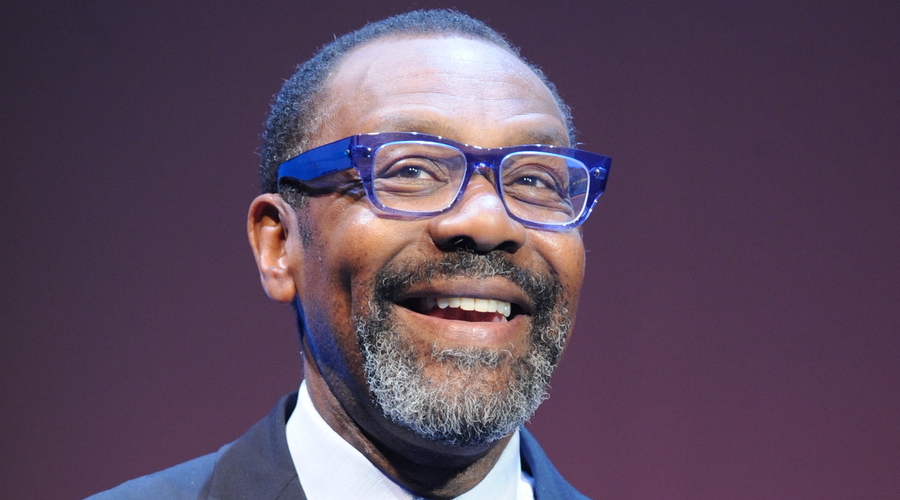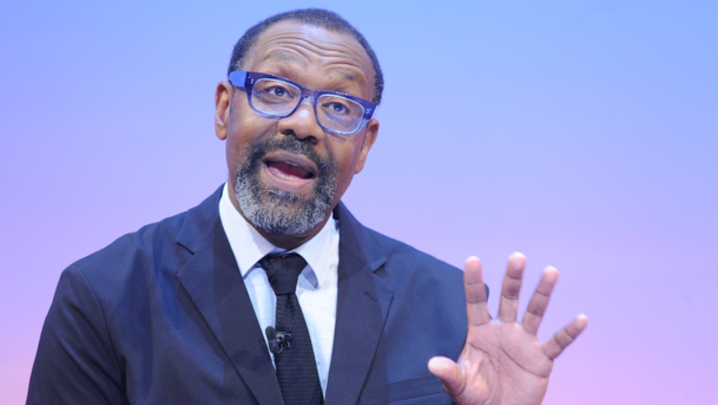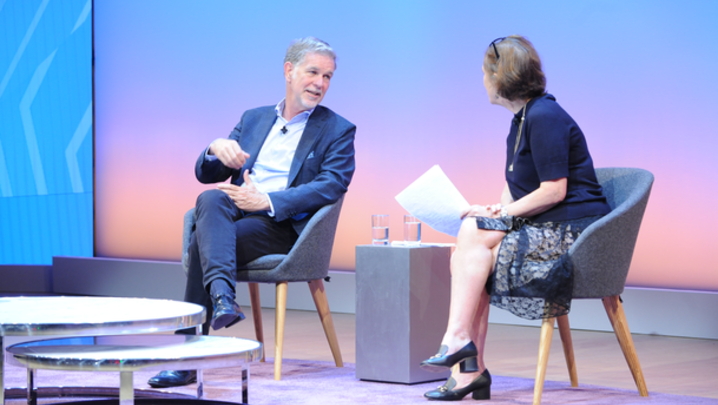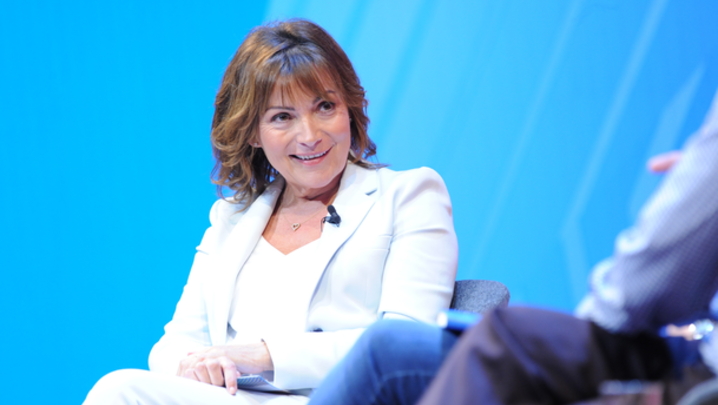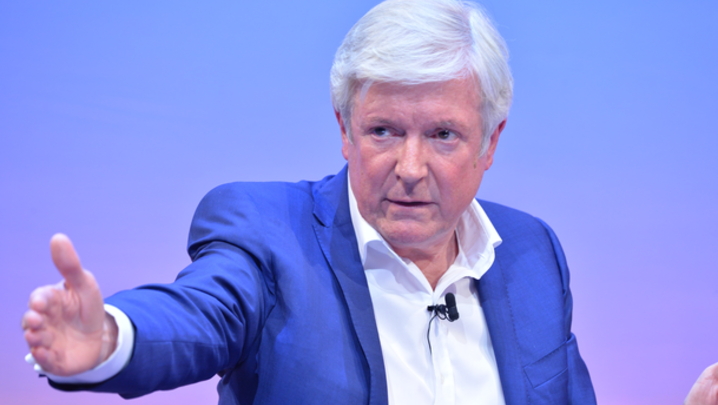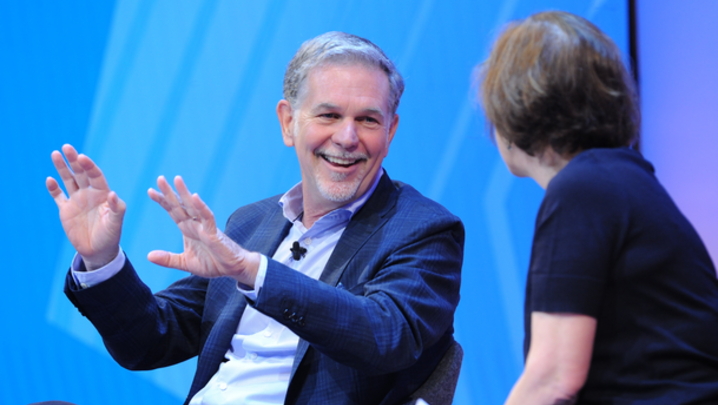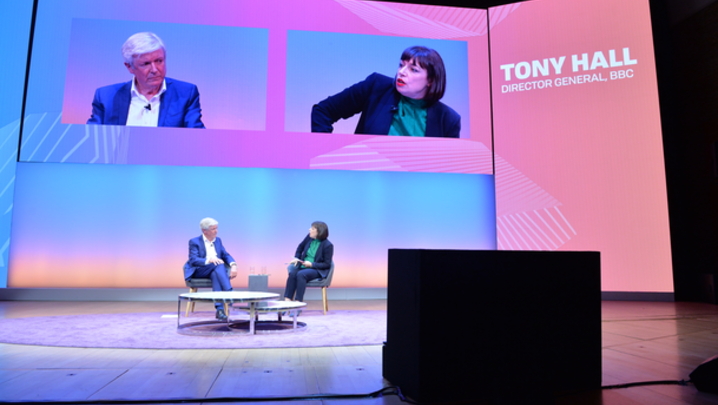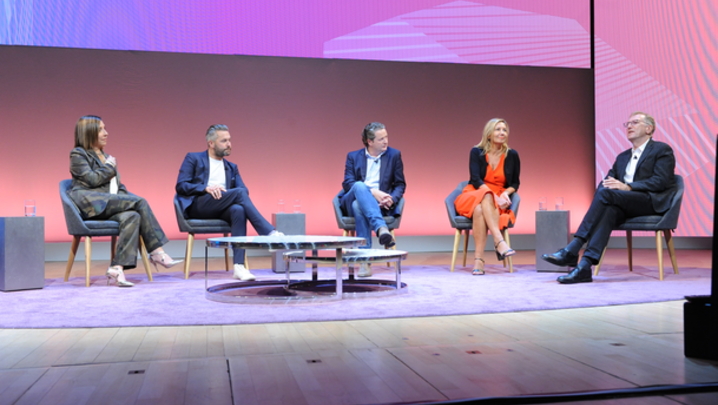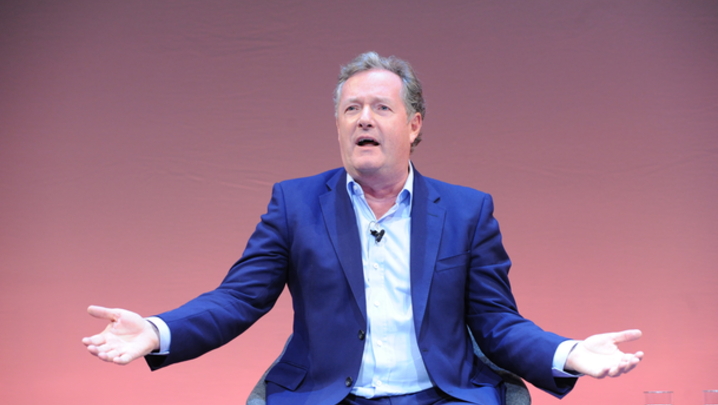Sir Lenny Henry calls for a different approach to diversity in the television industry in his speech at the RTS Cambridge Convention 2019.
Check against delivery.
It is a massive honour to be speaking today at the RTS. The Royal Television Society, the only place left where the word Royal isn’t followed by the words “shuts down Parliament”.
The RTS has consistently been at the forefront of highlighting the issue of diversity in the television industry.
I gave my first speech at the RTS over ten years ago, talking about how TV desperately needs more diversity and it’s a mark of how far society has come that I’m back today - to talk about how TV desperately needs more diversity.
Diversity makes TV better
Today I want to address the elephant in the room. Do we have to choose between great television or better diversity?
At least one very famous comedian, who I am sure you all know, has come out and said we wouldn’t have some of the great classic British comedy we have today if we had imposed diversity on how television was made in the 1960’s and 1970’s.
Let’s be honest, we are all here because we all love television.
I love television. I don’t know what you guys are watching at the moment, but personally I’m really enjoying the series finale of the United Kingdom. What’s gonna happen next?
I love watching television. I love making television. I love talking about television.
I still get goosebumps when I walk into a television studio.
I still get excited when I see a film crew in the street, and I hang-around wondering what they are filming. Then I call my agent like (on phone) “Why I aren’t I in that?? What do you mean Tena ladies incontinence pants -I can do that – I’m versatile!
And most of all I want to make the best television I can possibly make.
I want British television producers to make the best television programmes in the world.
So is there a trade-off between making great television and increasing diversity?
There are some people who think people like me would put increasing the number of black and brown people, or women, or disabled people working in the industry ahead of making amazing programmes. That somehow I would be happy to work on a terrible production just so long as it was directed by a woman.
Or I wouldn’t mind if people didn’t watch our programmes as long as we have more gay disabled people in management positions.
There is no doubt a moral imperative for increasing diversity; society is shaped by the stories we tell ourselves and who tells those stories. Diversity creates a better society. And when I am giving evidence at the House of Lords it’s the second thing I say.
The first thing is “wake up, you old bastards!”
But today talking to my fellow lovers of television I want to stress what for me is the most important part of diversity.
I do not believe we have to choose between great television or great diversity.
The fact is diversity makes television better.
But don’t take my word for it - here are a few facts:
In a study of 1,000 cable and network programmes the University of California found that programmes where ethnic minorities made up 31 to 40 percent of the cast had the highest ratings.
Or to put it another way, considering the study was done in the US, programmes that accurately reflect their audience have the best ratings.
You want your programme to have more social media impact? I have another study for that. The more ethnically diverse your programme the larger the twitter and facebook traffic.
And it is not just about diversity in front of the camera. The same study also found that scripted dramas and comedies that employed more women and ethnic minority writers also did better both in terms of ratings and financial returns.
I’m going to say it again.
Diversity makes TV better.
Don’t believe me? Have you seen Killing Eve? Have you watched any superhero movies recently?
Was it just a coincidence that the first time Doctor Who finally gets a black writer it immediately wins awards? Love you Malorie Blackman! Trust me, black women have been improving doctors for years. Just go to any hospital and watch one being told off by a Jamaican nurse.
I love TV. If you love great TV like me, you too will be a diversity champion.
Diversity is not the thing you do as an afterthought. It is how you make great TV.
So how is the UK television industry doing in increasing diversity?
Well let’s put it like this, the last series of Luther was just Idris investigating why he was the only black guy on the damn show.
In the last four years, the percentage of BAME people in the highest leadership positions has increased from 7.01% to 7.14% in 2019. That’s right, despite all the money that has gone into leadership schemes it has increased by nought point one three percentage points!
We haven’t got the new census data yet for the UK population - that will come out in two years time - but most people think it hasn’t even kept up with population growth.
Let’s forget leadership for a second and look at people working behind the camera more generally.
Well if we look at BBC Studios - the department responsible for making programmes - BAME representation has slowly been increasing by zero point 1 percent every year for the last couple of years. Again not even keeping up with BAME population growth.
Now I’m only citing BBC figures because they keep the best statistics but there is no reason to think that the other broadcasters have better figures.
And the BBC also has some real diversity wins to shout about. The corporation’s 50:50 project to increase women contributors on screen has been an amazing success. I also understand they are looking to increase it to cover other types of diversity. We can be so doom and gloomy when it comes to diversity we sometimes forget to celebrate our victories. Can we give the BBC’s 50:50 project a quick round of applause?
But it also kind of proves my point. We didn’t have to choose between good television and more women experts on TV. I don’t know anyone who says - I used to love the news and then they had all these women experts on giving their womanly expert opinion. I just watch repeats of Dad’s Army now instead!
But while there has been progress in front of the camera behind it there are still major problems and not just for BAME people. According to Directors UK, only 13.6% of TV directors are women and according to the BFI only 0.3% of the film industry’s workforce are disabled.
If diversity makes better television - which I 100% believe, is it any wonder that UK television is falling behind?
People are deserting us for Netflix and streaming services - especially diverse audiences. Have you seen Narcos? That show is so diverse the whitest thing in it is the cocaine. While Downton Abbey’s idea of diversity is a white dude who uses the wrong fork during dinner.
Netflix, Doctor Who, Killing Eve all prove that the idea that you have to make a choice between diversity and great television is simply wrong.
I want to make the best television AND I want more diversity so how do we do that if the industry is clearly failing to make television more diverse.
OK journalists, here comes the headline:
Sir Lenny Henry says it is time to scrap diversity schemes and initiatives.
They are simply not working. So am I saying we should all just give up and go home?
Certainly not.
What I am suggesting is we need to take a completely different approach and it doesn’t involve a bunch of training schemes with no jobs at the end. Or mentoring that goes nowhere. Or a Rooney Rule that increases the number of diverse candidates we interview but don’t employ.
My suggestion today is to take all the money, all the staff and all the time and effort we currently put into diversity and simply use it to increase the diversity of the programmes we commission.
This is not revolution. This is simply copying what the broadcasters do when they REALLY want to increase diversity. Except often they don’t call it diversity
When Channel 4 and the BBC wanted to increase the programmes they make out of London, in other words increase regional diversity, they did not launch a single diversity scheme or mentoring scheme. They put their money where their mouth is and commissioned programmes and productions out of London.
When the government wanted British media companies to increase the number of Children’s programmes they produce, in other words increase genre diversity - they didn’t tell Channel 4 or ITV to send them on commissioning training schemes.
They set up a 57 million pound contestable fund for Children’s programmes. Do you have any idea what that kind of money could do to increase BAME and disability diversity?!
When we wanted to grow the British film industry there wasn’t any mentor schemes put in place. We introduced tax breaks
So let’s just be honest. We’ve been talking about this long enough. We know what works. And we know what DOESN’T work.
Let’s just scrap all these diversity schemes and initiatives and put some money where our mouth is. In fact, forget the mouth, let’s put our money where our BAME talent is.
Every time I have given a speech over the last seven years I have never advocated another trainee or diversity scheme.
I have argued for ring-fenced money in exactly the same way regional diversity has been increased. I have argued for diversity tax breaks in exactly the same way the entire UK film industry has grown.
At the House of Lords I have argued for contestable funds in exactly the same way Children’s programmes have been incentivised.
And I have heard the most ridiculous excuses as to why these three things cannot be applied to diversity.
Let me recount an actual conversation:
"Lenny we LOVE your enthusiasm but we can’t do ring-fenced funds - it’s illegal according to the Equality Act."
Me: "Really? Because before suggesting it I got legal advice from Britain’s leading Equality Right’s lawyer and they say its legal. What lawyer did you talk to?"
It was the kind of silence I usually only get when I do jokes about television commissioners in front of a bunch of media execs who are pitching programmes - you know the kind of gig.
If it sounds like I am frustrated, it is because I am.
Now I don’t need the broadcasters, Ofcom and the government to agree with my solutions. In fact, that is something I have said that from the very start but what I have always said is, if you don’t think my solutions are any good then suggest something better. And rolling out failed policies is not better.
You all know the definition of madness as defined by Einstein: Repeating the same process and expecting a different result.
So let’s stop going crazy - let’s make diversity work once and for all and make some brilliant television.
Diversity makes TV better.
Let’s make great TV.
Diversity is like a pizza. What makes it awesome is the mixture, the combination of things on top. Different flavours, different colours, all complimenting each other - so lets do that.
We ordered our pizza ages ago. It’s time to deliver.


